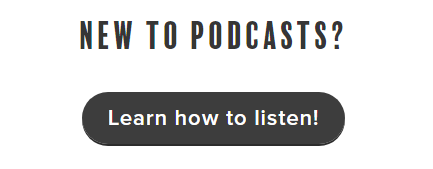|
On the eve of the 2018 Third Coast International Audio Conference, Communications Manager Mitchell Bloom—who produces and edits our podcast—shares five actionable lessons learned from Podcast Movement 2018
BY: MITCHELL BLOOM
ALAS, this weekend, I will not be in the room where it happens.
It’s not my party. I didn’t RSVP in time. And I’ll cry because I want to. The aforementioned “room” is Chicago. The “it” is the 2018 Third Coast Conference. To extend the metaphor a bit further (Hamilton references aren't dated yet, are they? I'm late!), some of podcasting's Founding Folxs will be there leading sessions I will personally be very sad to miss, including...
Speaking of ears: do you hear that? It’s the distant sound of podcast nerds (myself included) singing a chorus of "allelu"s at the mention of those names. It's the sound of ears that can see because the writing is so good. It's the sound of experts in the craft of creating audio stories (aka podcasts) sharing their knowledge and lifting all of us up, together. Jokes aside, I’m bummed that I won’t be able to learn from these luminaries and others at Third Coast. Rather than sit in my sorrow, though, I thought I'd take the occasion of the impending audio conference to share some overdue reflections and takeaways from an Audio Conference of Yore that I did attend: Podcast Movement, which took place right here in Philadelphia—eons ago—in July. Podcast Movement 2018
|
|
Extroverts Extroverting
|
The Rest of Us
|
In spite of a strong urge to disappear within the walls of the Philadelphia Marriott Downtown because... so many people, I learned a lot over the span of Podcast Movement's three days.
Since much of the industry-wide knowledge unveiled at the conference has already been expertly recapped or summarized by others, I'm going to focus on five actionable items I immediately applied to our podcast after I left Podcast Movement.
TO DO: Simple Changes
You Can Make Now
1) Educate potential listeners in any way possible.
BRAG: We've had a "How To Listen" page since day one.
We created it because we had a conversation very early on with some supporters of the organization who had absolutely no idea how to listen to a podcast. As it turns out, that is very common.
In his keynote at Podcast Movement, Tom Webster of Edison Research urged all of us to do a better job of explaining podcasting to the general public. That keynote is essentially adapted into this article, and is definitely worth a read if you're interested.
According to Edison Research, nearly half (48%) of people who don't listen to podcasts don't know how to listen.
So we bumped that "How To Listen" page up from our website's footer where it was living to a more prominent spot on the landing page.
TAKEAWAY: If you don't have one already, create a "How to Listen" page. Or link to one like this one from Philly's own Rashomon podcast. And make it prominent on your podcast site.
Listen to any one of our 22 episodes (listen to all of them!), and you'll hear us say: "Subscribe on iTunes or wherever you listen to podcasts."
For better or worse, that's the language the podcast industry has adopted to tell to people to stick with us, to follow our shows, and to listen on a regular basis.
As Tom Webster explains in great depth: "subscribe" suggests that podcasts cost money. In reality, most podcasts are free, so the language we have decided to use is misleading. Especially for potential listeners who don't know any better.
Think about it: if you subscribe to a magazine, you're paying for it. If you subscribe to your local newspaper (highly encouraged), you're paying for it. If you subscribe to HBO, you're paying for it because you watch Game of Thrones or Insecure or both.
I don't know about you, but I'm rarely trying to spend money about something I know very little about.
If you subscribe to a podcast, you're simply following it to keep up-to-date with its episodes. And that's the language we'll begin to incorporate next season.
TAKEAWAY: Lose "Subscribe." Use "Follow."
Who knew three words—"Subscribe on iTunes"—could be so problematic?
I might be exposing myself as a total podcasting hack, but until Podcast Movement I did not know that it was a no-no to direct people to iTunes.
Apple Podcasts is Apple's jam for podcasts. It's different than iTunes.
TAKEAWAY: Direct listeners to Apple Podcasts NOT to iTunes. Or just send them to your website where they can find myriad ways to listen... (food for thought).
THIS is certainly a "duh."
But dang, coming up with a brief summary about your podcast is a) easier said than done and b) never more necessary than when you're surrounded by 2,000 people who want to talk about their podcast inside of a three minute break.
Here's what I came up with: "We talk to teens about topics that matter to them, and then we ask the community to respond."
If the elevator hasn't arrived at its destination, I'd add this: "Each episode features a dramatic monologue written by a high school student and is part performance, part interview, and part conversation."
To be completely honest, I think that still needs work. But the fact of the matter is, our podcast does a lot in a short amount of time. We'll figure it out.
TAKEAWAY: Make sure you can articulate what your podcast is in as few words as possible.
- Bello Collective, an independent publication for all things podcast
- Ma'ayan Plaut, Content Strategist & Podcast Librarian, RadioPublic
- Wil Williams, Podcast journo, Wil Williams Reviews
- HotPod: SUBSCRIBE TO THIS WEEKLY NEWSLETTER for awesome industry insights & news
Right.
|
Leave a Reply.
Categories
All
1219 Project
Alumni
Autism Program
Board Of Directors
Butterfly Project
Candles
Classroom Program
Lesson Plan
Middle School Monologue Festival
Mouthful Monologue Festival
New Voices
Partner Productions
Paula Vogel Mentors Project
Photos
Press
Productions
Re Play Newsletter
Re-Play Newsletter
Saturday Reading Series
SDP
Students
Teaching Artists
Testimonials
Time Machine
Video
Workshops
Write On!
Young Voices
Youth Council




